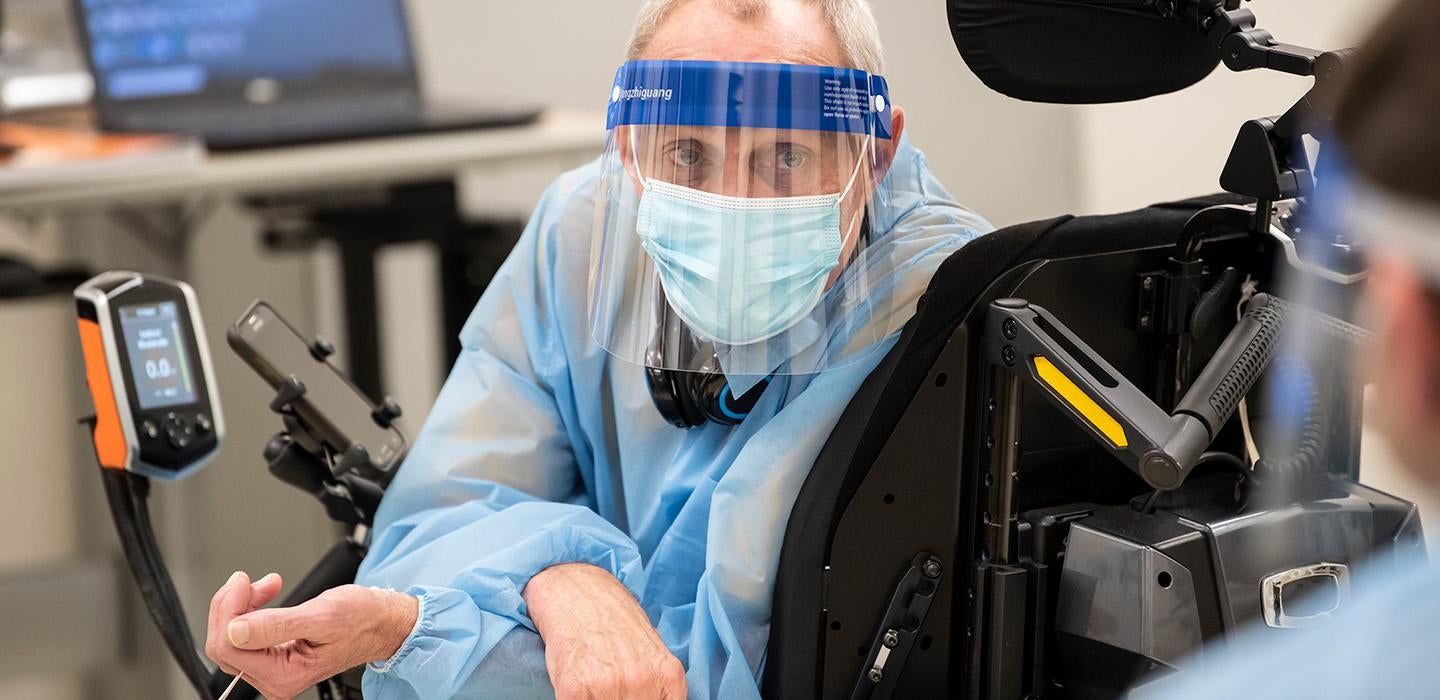
Subscribe to Pittwire Today
Get the most interesting and important stories from the University of Pittsburgh.As care for individuals with paralysis moves increasingly toward home- and community-based delivery models, the University of Pittsburgh School of Health and Rehabilitation Sciences (SHRS) and School of Medicine continue to lead research innovation with the establishment of the SmartTech Implementation Hub for Paralysis Care. The new research program will provide unique opportunities to improve independence for individuals with paralysis and reduce caregiver burden.
Thanks to a $5 million gift made by an anonymous donor, work to develop this program has already begun. Once completed, the Hub will serve as a national resource center dedicated to supporting research, training, policy, advocacy and knowledge translation in the field of smart technology implementation for paralysis care.
“We are so grateful for this incredible show of support that will advance critical research initiatives at Pitt,” said SHRS Dean Anthony Delitto. “Thanks to this generous investment, the Hub will ultimately move the needle forward on innovative solutions to support individuals with paralysis.”
Smart technology encompasses a broad range of tools, such as smart home devices for home automation, fitness trackers and smart pill dispensers for health management, smart security systems and sensors for safety, smartphones and other devices for hands-free communication, and virtual reality or augmented reality tools for interactive applications — each of which holds immense potential to improve the quality of life for individuals with paralysis. Yet despite the increasing availability and affordability of smart technology, those who would benefit the most often run into barriers when they try to access and implement these tools in their daily lives.
“As smart technology continues to develop, it is our mission to find novel ways to integrate the most cutting-edge technology with the latest patient care initiatives,” said Gwendolyn Sowa, professor and chair of the Pitt School of Medicine’s Department of Physical Medicine and Rehabilitation.
The Hub will build upon the work started at the Rehabilitation Engineering Research Center on Wireless Technologies for People with Disabilities, which aims to promote accessibility and inclusivity of mainstream wireless technologies for people with disabilities. By further leveraging smart technology features such as sensors, data analytics, connectivity and artificial intelligence, the Hub will provide insights into the effective implementation of these tools to enhance health and wellness for individuals with paralysis and support their families and caregivers.
The Hub is led by Dan Ding, associate professor and vice chair for research and translation for SHRS’ Department of Rehabilitation Science and Technology, and Lynn Worobey, assistant professor in the Department of Physical Medicine and Rehabilitation. They’ll work in collaboration with a team of engineers, physicians, physical and occupational therapists, assistive technology professionals and individuals living with paralysis.
Ding and Worobey are conducting comprehensive needs assessments and developing, implementing and assessing smart-technology services within various care settings. They are also dedicated to creating resource portals and developing new AI-based tools to support people with paralysis and their families.
“I am very excited and grateful to have this opportunity to bring together a great team that shares our vision and passion, pooling resources and expertise toward a meaningful mission to empower people with paralysis through emerging technology,” said Ding. “With technology now increasingly woven into every facet of our lives, the system approach we are taking promises to bridge the technology gap, ensuring accessibility and full utilization for individuals with paralysis.”
The team is also forming key partnerships with the UPMC Rehabilitation Institute to provide additional support and resources for individuals with paralysis. This includes implementing a clinical research program for inpatients at UPMC Mercy and partnering with UPMC ASSIST+, a program dedicated to providing life-enhancing products that may not be covered by insurance, to establish a space for patients and their families to browse smart technology options in-person, ask questions and access educational materials. This program is expected to launch later this spring.
— Sierra Smith, photography by Aimee Obidzinski


